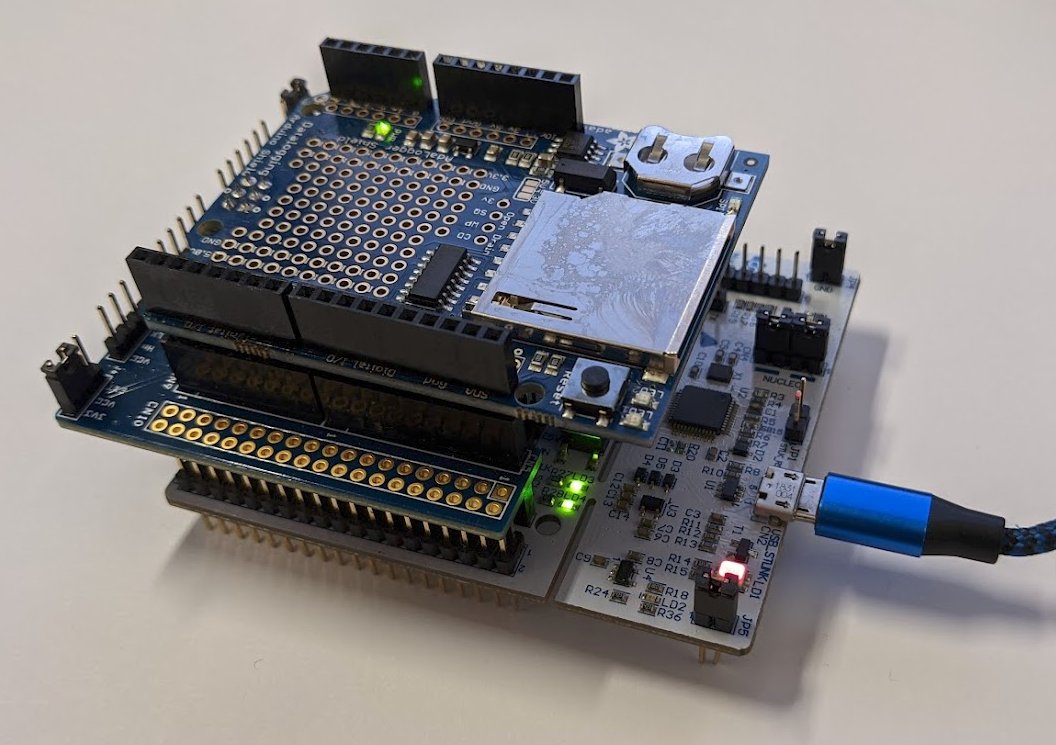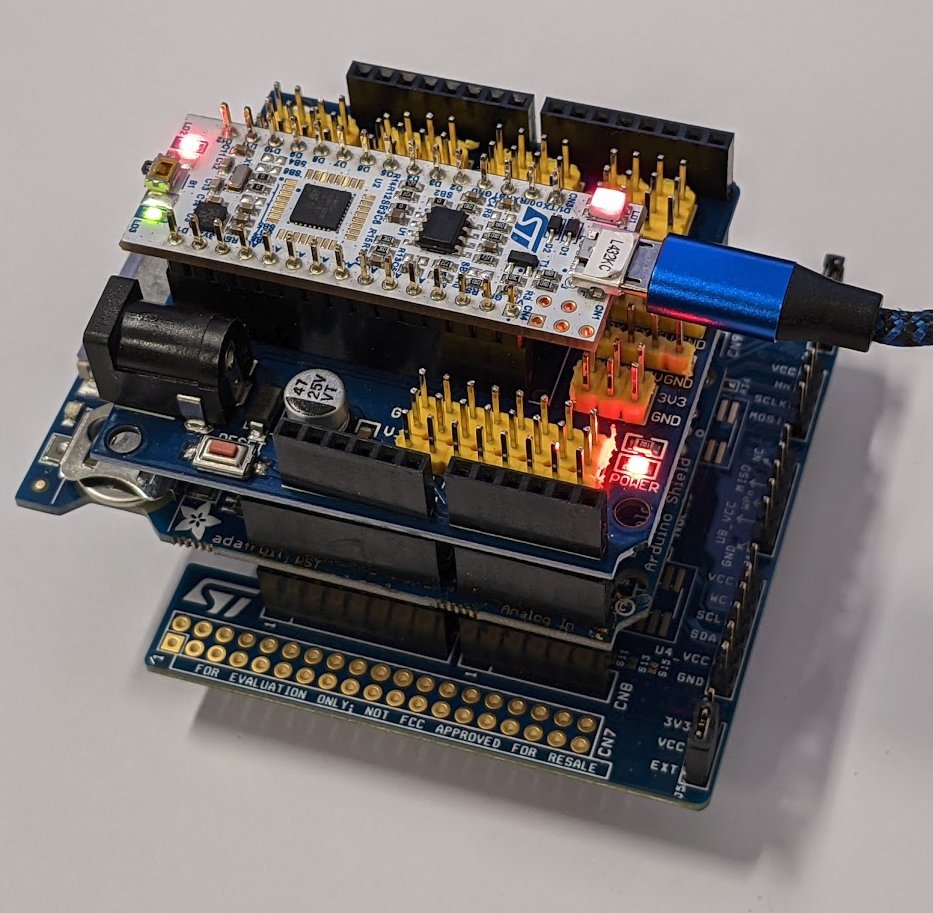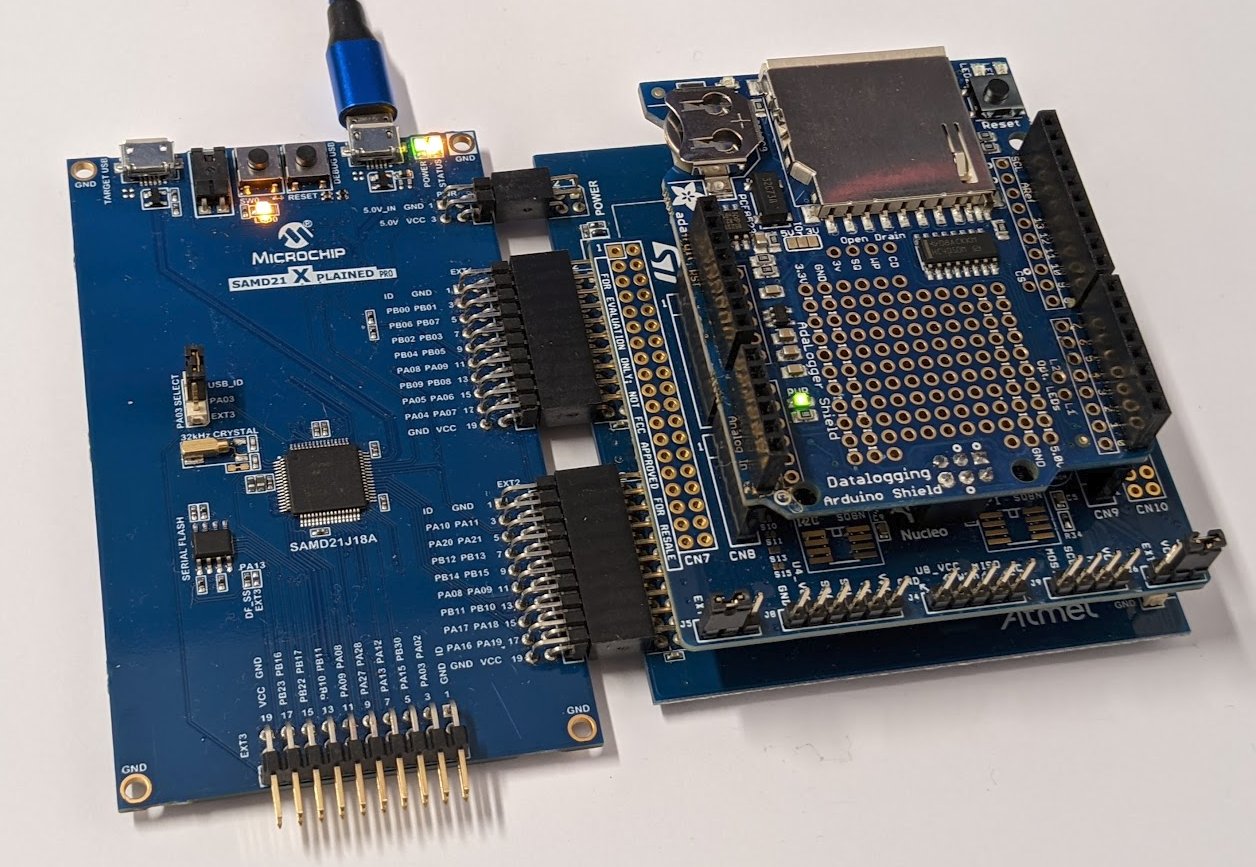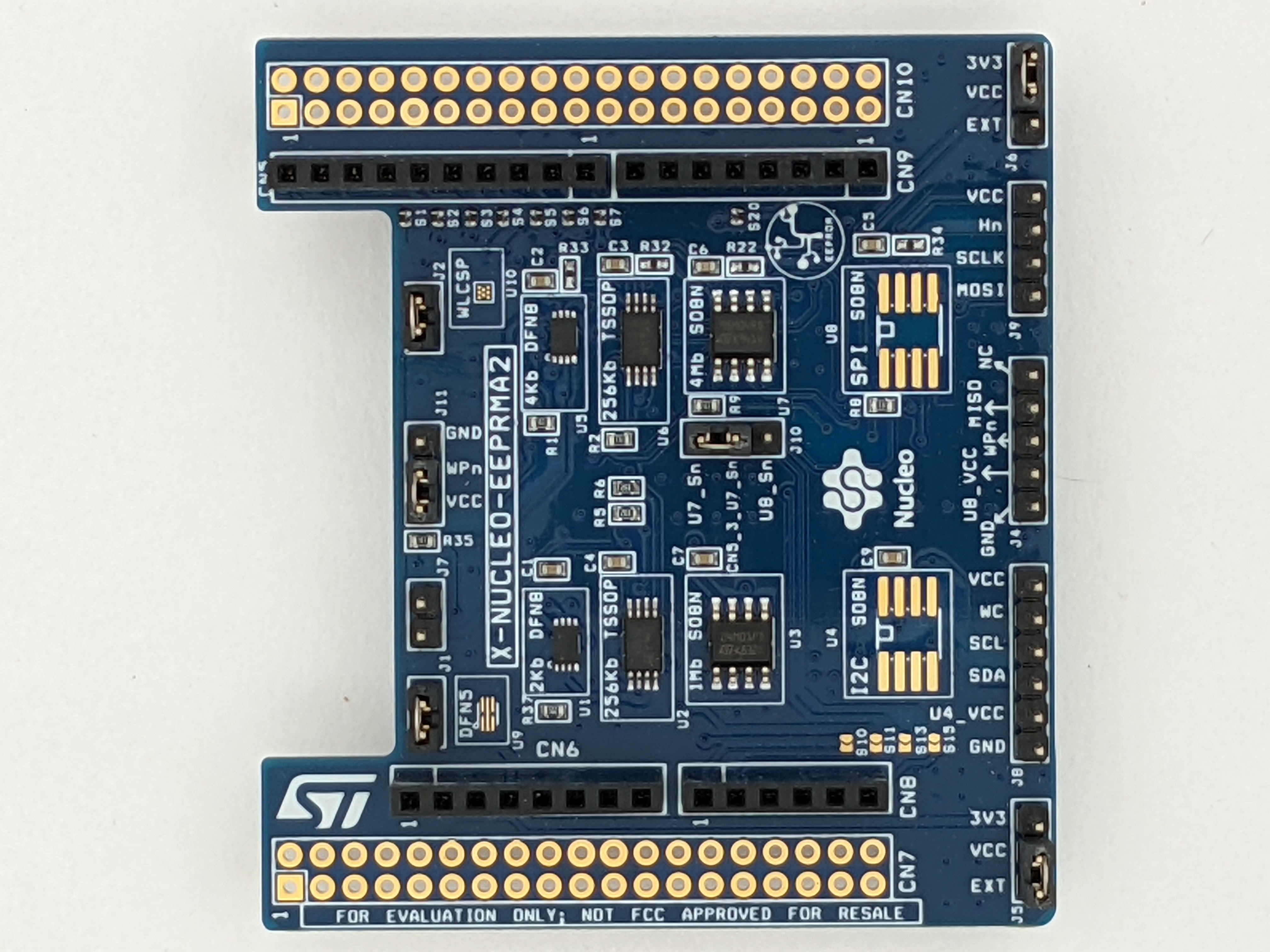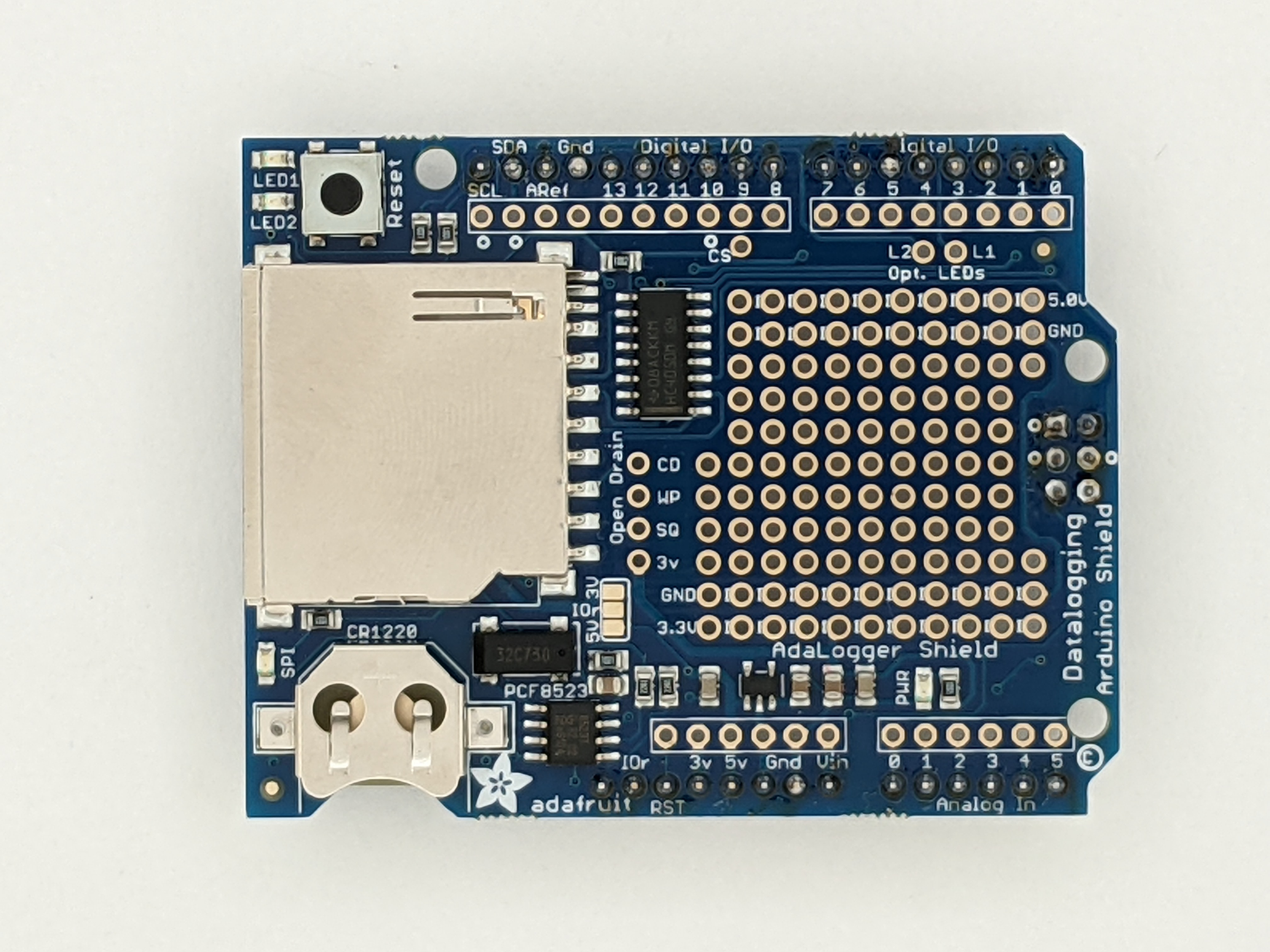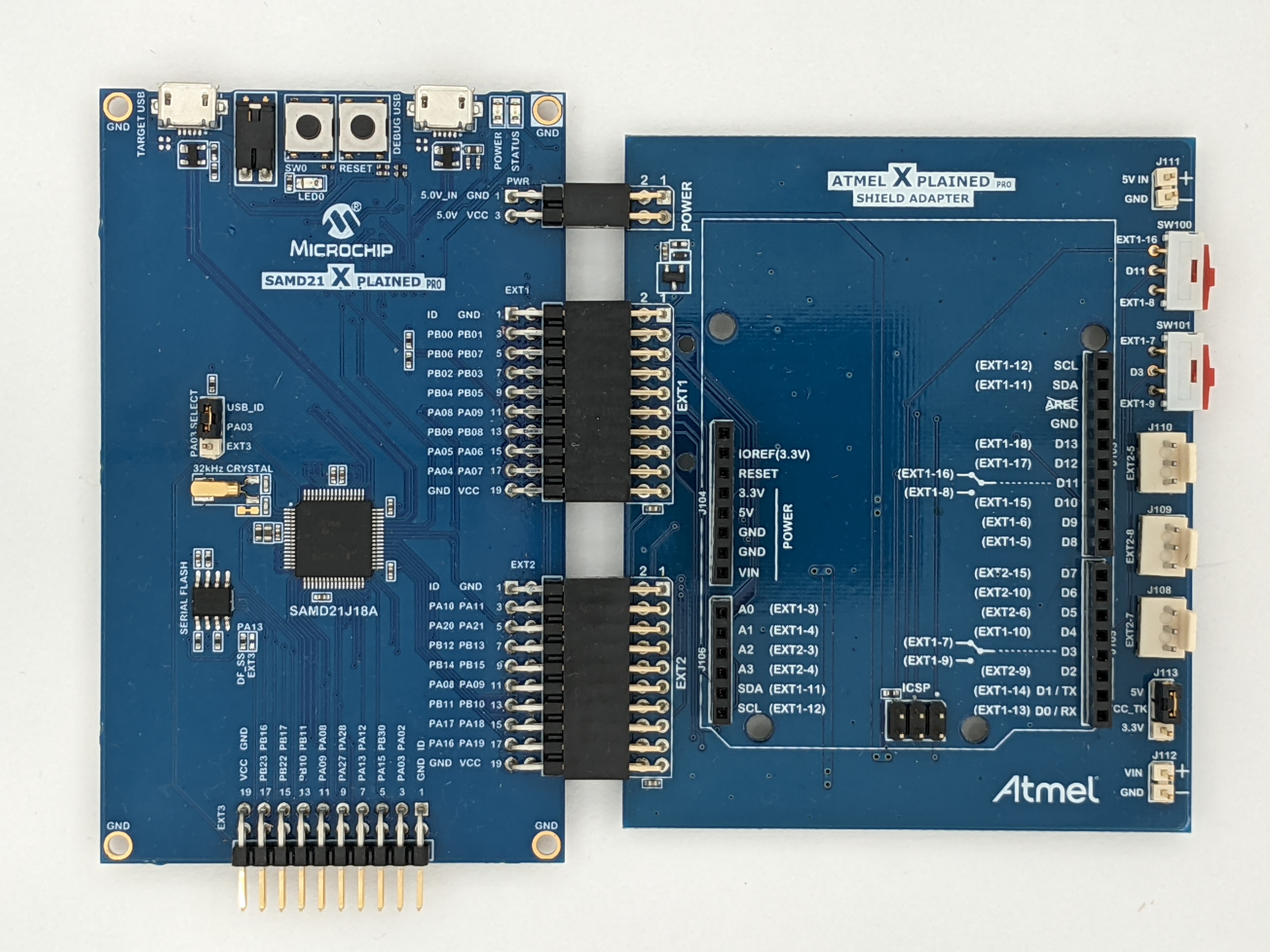This repository holds an example application for libnklabs that runs on various STM32 and ATSAM development boards.
The source code for an example application is available in app/.
It can be compiled for various targets, see target/.
To build a particular example and install it on a target board:
cd target/nucleo-g071rb
make
make flash
It is important to work with and not replace the vendor tools and libraries in commercial products. The example uses each vendor's tool generated HAL (hardware abtraction layer) and Makefile. In particular:
-
STM32CubeMX allows you to instantiate peripherals, define the pinouts, set up clocking and generate startup code for ST Mirco's MCUs.
-
Atmel Start is a web tool that does the same for Microchip/Atmel's ATSAM ARM microcontrollers.
These tools do have a learning curve that we believe is worth overcoming. The example application provided here can be a good starting point for this.
It is important to note that these tools are not IDEs. They can target IDEs, but they also can generate code that can be built from the command line using Make and Gcc. We prefer this since it facilitates automated testing and building.
Once the application is running, the follow commands are available:
The example application includes CLI commands that allow you to access common embedded system peripherals including I2C EEPROMs, SPI-Flash devices and an external Real Time Clock. The low cost vendor development boards do not include these peripherals, so the example application accesses them on the following Arduino "shield" boards that can be plugged into the MCU vendor's development boards:
The example application will work without these shields, you just lose the associated features.
Shields plugged into ST Nucleo board:
ST Nucleo Nano board plugged into Nano adapter, then plugged into shields:
Shields plugged into ATARDADPT-XPRO for Atmel Xplained Pro board:
For I2C and SPI EEPROMs:
For the PCF8523 Real Time Clock:
You need a recent version of this board- one that supports 3.3v.
For Atmel/Microchip's Xplained Pro development boards, you need this Arduino Shield adapter to use the above boards:
